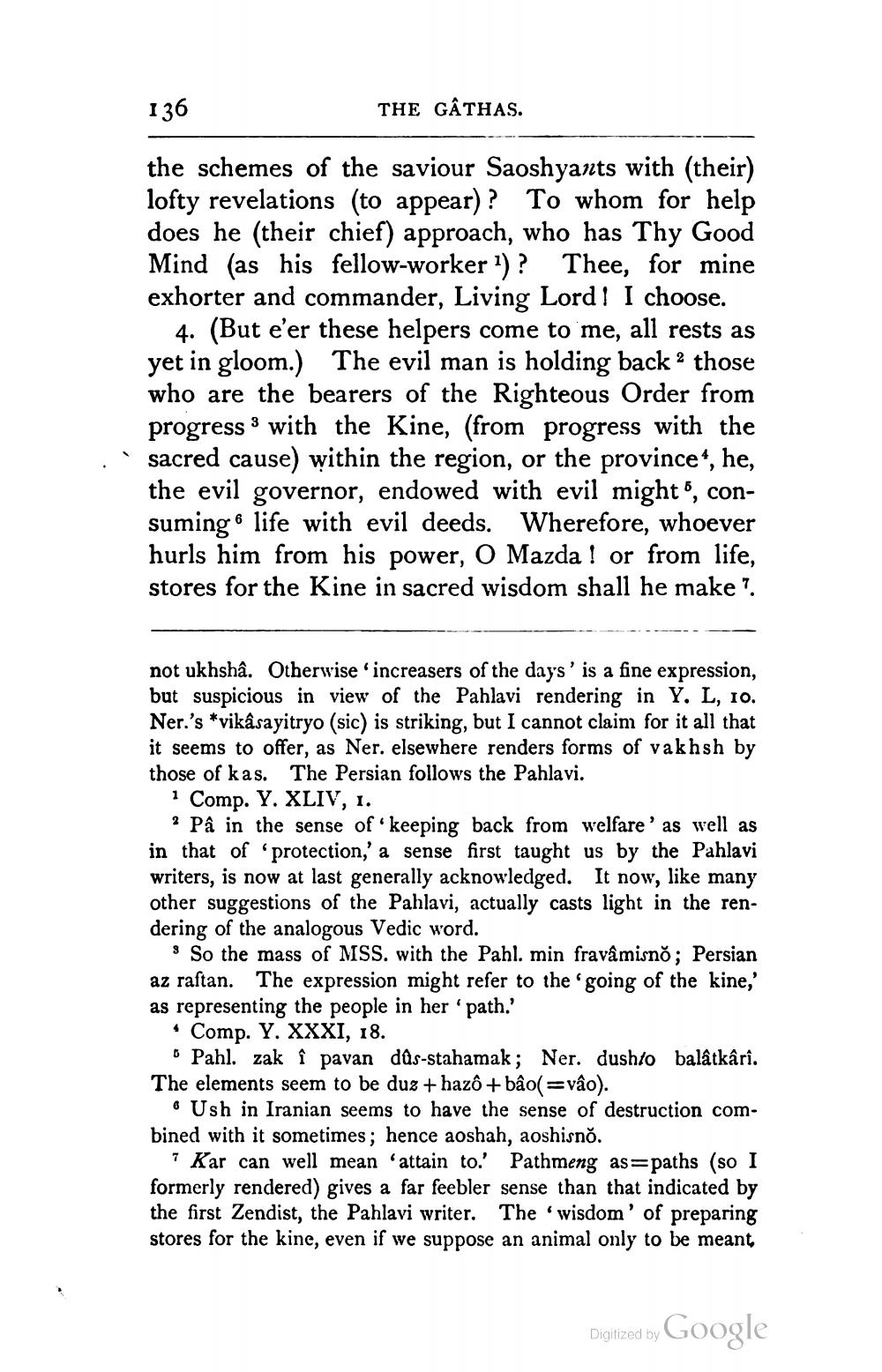________________
136
THE GÂTHAS.
the schemes of the saviour Saoshyants with (their) lofty revelations (to appear)? To whom for help does he (their chief) approach, who has Thy Good Mind (as his fellow-worker 1)? Thee, for mine exhorter and commander, Living Lord ! I choose.
4. (But e'er these helpers come to me, all rests as yet in gloom.) The evil man is holding back 2 those who are the bearers of the Righteous Order from progress : with the Kine, (from progress with the sacred cause) within the region, or the province, he, the evil governor, endowed with evil might", consuming life with evil deeds. Wherefore, whoever hurls him from his power, O Mazda ! or from life, stores for the Kine in sacred wisdom shall he make?.
not ukhshâ. Otherwise 'increasers of the days' is a fine expression, but suspicious in view of the Pahlavi rendering in Y. L, 10. Ner.'s *vikâsayitryo (sic) is striking, but I cannot claim for it all that it seems to offer, as Ner. elsewhere renders forms of vakhsh by those of kas. The Persian follows the Pahlavi.
1 Comp. Y. XLIV, 1.
? Pâ in the sense of keeping back from welfare' as well as in that of protection,' a sense first taught us by the Pahlavi writers, is now at last generally acknowledged. It now, like many other suggestions of the Pahlavi, actually casts light in the rendering of the analogous Vedic word.
9 So the mass of MSS. with the Pahl. min fravâmisno; Persian az raftan. The expression might refer to the 'going of the kine,' as representing the people in her path.' - Comp. Y. XXXI, 18.
Pahl. zak i pavan důs-stahamak; Ner. dushto balâtkâri. The elements seem to be duz + hazô + bao( =vâo).
o Ush in Iranian seems to have the sense of destruction combined with it sometimes; hence aoshah, aoshisno.
? Kar can well mean 'attain to.' Pathmeng as=paths (so I formerly rendered) gives a far feebler sense than that indicated by the first Zendist, the Pahlavi writer. The wisdom' of preparing stores for the kine, even if we suppose an animal only to be meant
Digitized by
Digitized by Google




